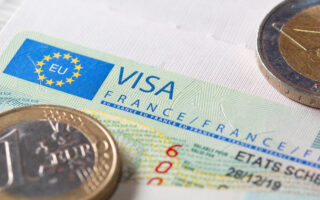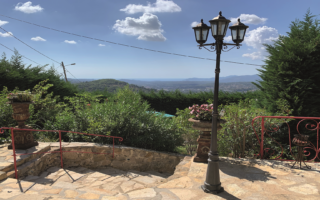In sickness and in health
Samantha David takes a look at how to access all the medical help available in France
Finding a GP (a m�decin g�n�raliste) is simple: either ask at the pharmacy or check the Pages Jaunes – the French equivalent of the Yellow Pages (or online at www.pagesjaunes.fr). Choosing one is trickier because so much depends on finding a doctor you like and trust. Asking around is a good idea and, of course, there’s nothing to stop you ringing up potential doctors with a few questions – especially if you’re looking for one who speaks English/specialises in homeopathy/has specific surgery hours.Once you’ve made your choice, in order to get your full reimbursements, you have to officially declare your GP, which is simple. You just fill in a form (a d�claration de choix du m�decin traitant – see page 66) which you get from the doctor or download from www.ameli.fr. The doctor then stamps it, signs it and sends it off. This doctor (your m�decin traitant) will now be your first stop for most health issues. You are still free to consult any other GP of course, but unless you make a fresh d�claration and officially change your GP you will lose 40 per cent of your reimbursements. Obviously, if you urgently need to see a GP while you’re travelling in some other part of France, you will still be fully reimbursed.The system is designed to curtail the old French habit of patients consulting multiple GPs until they got the diagnosis and/or medicines they thought they deserved! An interesting result of this new’ system is that GPs do not routinely send patients’ notes on to each other. Therefore, your new GP will not necessarily know all the details of your previous consultations/treatments/exams.To be fully reimbursed for medical consultations/treatments from healthcare professionals other than your GP, you need a prescription: if you want physiotherapy after a nasty sprain, for example. Essentially, the only specialists you can consult without a prescription are ophthalmologists, gynaecologists, psychiatrists and dentists. If in doubt ring your GP and ask before making an appointment.Eye tests are not carried out by opticians but by ophthalmologists, usually at the local clinic or hospital. You don’t need a prescription from your GP; you just ring up and make an appointment. (The local pharmacy will be able to tell you where.) It is worth noting that you can use a French prescription to buy glasses in the UK. Doing this can pay off handsomely because prices for glasses – ie new frames plus two single vision lenses – start at around €300 (�261) in France and unless you have excellent top-up insurance – ie a comprehensive mutuelle – the reimbursement is derisory. Basic health insurance reimbursements (ie from la s�cu) start at €2.29 (�1.99) per lens.
Waiting listsWaiting lists are rare in France although sometimes – especially in towns – you may have to make non-urgent appointments (eye exams, regular check-ups etc) a few weeks ahead. If you don’t want to wait however, you can shop around to find an appointment sooner somewhere else. There are no geographical limitations. In fact it isn’t uncommon for people undergoing operations such as hip replacements to have the surgery in an entirely different part of France from where they live in order to be hospitalised near family and friends.Indeed, since you can choose anyone in France to do your surgery, the main difficulty can be knowing who to choose. Your GP should be able to advise you, and if you want a female surgeon or someone who speaks English for example, you could also ask your GP about that. If you aren’t convinced by your GP’s recommendation, you are at perfect liberty to find someone else. Obviously, asking around is one method. Another is to look up the various hospitals, which are run by the state, and clinics, which are run by private companies or health insurance companies, in your area and check out their websites to see which ones perform which surgeries.In general, private clinics are smaller, quieter and offer a more personalised service, while public hospitals tend to be equipped for any eventuality and some include a teaching element. Once you have made a choice, you can either ring up yourself or ask your GP to do so, and at this point you’ll have to specify convenient dates. It isn’t unheard of for a surgery slot to be scheduled around the availability of a dog sitter!Once you enter the French healthcare system, you become eligible for various free health screenings and check-ups or d�pistages and you will receive letters telling you about them and inviting you to go along. Children get regular general check-ups, usually via school, and are invited to go for free dental check-ups at 6, 9, 12, 15 and 18 years old. The MMR is also free for children under 13.The morning-after pill is available free to girls under 18, either from family planning centres or pharmacies, and neither a prescription nor ID is required. Contraception is also free for girls under 18 and parental consent is not required. Women over 18 can also get the morning-after pill without a prescription, but in that case they have to pay for it. With a prescription, it is reimbursed 65 per cent.For over 50s, tests for colorectal and breast cancer are free and invitations are sent out by post. Flu vaccines are also free for this age group.From time to time, depending on where you live and which mutuelle (top-up health insurance) you have, other check-ups, screenings and tests are offered free and you can choose whether to go or not. Your GP will also send you for whatever other screenings you might need – x-rays for arthritis, for example – but these are not free. Basic reimbursements vary but are generally 65 per cent of the government’s fixed price.A lot of very good free advice is available from French chemists – pharmacists are highly trained and can help with all sorts of ailments from stomach cramps to mysterious skin rashes. Some also specialise in alternative treatments such as herboristerie (herbalism) which involves using medicinal plants. These shops are extraordinary Aladdin’s caves and worth a visit just for the herbal teas or tisanes. Many chemists stock homeopathic remedies too, and can give advice on treatments, doses, etc.Note that if you have a prescription for a homeopathic remedy, it will be reimbursed at 35 per cent. This is because some GPs have also trained in homeopathy and others in acupuncture, so consultations are reimbursed in the same way as regular consultations, except that GPs can charge anything up €80 (�69) for this type of consultation, although the reimbursement from la s�cu remains based on the same price as a classic consultation. Many mutuelles do however reimburse these types of consultations/treatments.
Joint painsLa kin� (physiotherapist) is a much-loved institution in France and courses of kin� are prescribed for all kinds of ailments: headaches and depression as well as for backache, posture problems, sports injuries, sprains, breaks and mysterious joint pains. As long as they are prescribed by your GP they are reimbursed.French dentists tend to focus on treating established problems rather than prevention. So when you go to the dentist be prepared for the question what seems to be the problem?’ If you’re just there for a check-up, be ready to specify that you also want x-rays and a de-scale, or you might not get them. X-rays are most often taken by a machine that moves around your entire head in order to x-ray the whole jaw and all the teeth.If you have a damaged filling, you will find it difficult to get it repaired in France as the favoured treatment is a crown. Extractions and amalgam/metal-coloured crowns are common. Reimbursements are not generous. This may explain why the French press regularly carries stories about French people going abroad for dental treatment.It is difficult to find periodontists (gum disease and implant specialists) and dental hygienists in France for the simple reason that they are not officially recognised as specialists in their own right and therefore cannot advertise their services. They do exist however, usually listed in the Pages Jaunes as dentists. You can find them either by word of mouth or by ringing an orthodontist and asking for a recommendation. Orthodontists are recognised as specialists and often work closely with periodontists; they are usually more than happy to pass on the names of their colleagues.Hearing tests are not reimbursed by la s�cu but some mutuelles cover them. Therefore you do not need a prescription but can go along and book a hearing test whenever you like. Hearing aids are badly reimbursed; the rate is 65 per cent of a fixed price of €199.71 (�173) but in reality hearing aids start at approximately €750 (�651) and go up to well over €2,000 (�1,737). So again, a person who relies on a hearing aid will be looking closely at the cover offered by their mutuelle. Taking your leaveWaiting rooms in France are organised so that patients in the waiting room do not see the patients coming out of the surgery. This may mean that the doctor’s surgery has different entrance and exit doors and in a large clinic you could find yourself coming out of the surgery in a completely different part of the building. So don’t leave your coat in the waiting room!
Share to: Facebook Twitter LinkedIn Email


